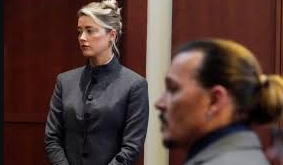
The dramatic qualifying session at Imola sees Verstappen on the front row ahead of Charles Leclerc and Lando Norris
Max Verstappen will start at the front of the grid for Saturday’s sprint race after clinching pole position for the Emilia Romagna Grand Prix in an eventful and unpredictable qualifying at Imola. The session saw a record-breaking five red flags due to changing weather conditions and crashes, with the final one preventing Charles Leclerc from attempting to challenge Verstappen’s leading time.
Leclerc, who currently leads the Formula One championship, will start second ahead of Lando Norris in the 100km sprint that will determine the grid for Sunday’s main race. Meanwhile, Carlos Sainz’s session ended prematurely after a crash at the final corner, as rain conditions complicated the situation.
Lewis Hamilton struggled during the session, starting in 13th place after narrowly advancing through the first qualifying session by just four thousandths of a second. The Mercedes team continues to struggle with porpoising issues, further exacerbated by Imola’s surface and changing weather conditions.
Q1 was interrupted by the first red flag when Alex Albon’s right-rear brake failed, sending flames across the track as he brought his Williams to a stop. Q2 also suffered delays after most drivers only managed one flying lap before conditions worsened.
Sainz’s crash came as rain started to fall, further impacting the session’s progression. Hamilton and teammate George Russell found themselves in danger of elimination due to worsening conditions.
Kevin Magnussen contributed to the unpredictability by spinning off at Acque Minerali during Q3, while Valtteri Bottas brought out yet another red flag when his Alfa Romeo stopped on the back straight.
Verstappen managed to set the fastest time with a 1:27.999 despite being instructed to slow for a yellow flag. With only 40 seconds remaining, Norris made contact with the wall, cementing Verstappen’s pole position and ensuring the Dutch driver will lead the sprint race at Imola.




















Comments
Hello world!
Pic of the week: Sunset at margate beach
The first day’s journey was through the pink fields
The first day’s journey was through the pink fields
The first day’s journey was through the pink fields